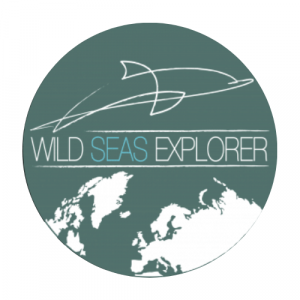-
Location
Rest of the World
-
Duration
4-7 days
-
Experience Theme
Oceans and Seas
Mediterranean Sailing Expedition - Cetaceans and Marine Megafauna
WILD SEAS EXPLORER (SARL COOP ODYSSEE DU VOYAGE)
- Oceans and Seas
- Plants and Animals
Discover life aboard a sailboat, anchorages, nights at sea and eco-responsible navigation.
Put yourself in the shoes of a scientist-adventurer for 7 days and 6 nights, discovering cetaceans and participating in data collection.
Book now
The cetacean observation and study expedition presents an experience of naturalistic and scientific interest.
The navigation area is the Pelagos sanctuary in the Mediterranean. The Mediterranean is a biodiversity hotspot rich in cetaceans.
18 species inhabit the Mediterranean, 8 (from 4 different families) are quite easily observable in our prospection area. Also, certain Mediterranean species tend to become more specific and little information is still available on the movements, feeding and reproduction areas of cetaceans in the Mediterranean.
Sailing exploration allows participants to gain an understanding of endangered species and an ecosystem and participate in data collection within an ethical and responsible approach.
During shipping, a line transect protocol is implemented. 3 observers, previously trained by the guide, observe the sea to detect the presence of animals. These transects respect specific conditions (wind force, sea state, boat speed, observers' attendance).
They make it possible to obtain a first set of animal presence/absence data.
During the observations, an observation sheet is completed by the participants and the guide. This observation sheet has been drawn up in such a way as to provide standardised data that can be used by as many people as possible.
Species identification, individuals count, presence of calf, behaviour, disturbance are collected. Photo-identification (on certain species) is carried out in order to be able to identify animals individually.
A hydrophone recording is also made on the sperm whales.
All these data sets (transect, data, photo-ID, recordings) are transmitted to associations and to an application making it possible to make the data public on request.
All images © WILD SEAS EXPLORER
-
Learning Format
Guided experience, Citizen science
-
Time of year
Summer
-
Environment
Oceans and Seas, Plants and Animals
-
Accessibility
Moderate impact
-
Average Price Per Person
1950 EUR
-
Subject Knowledge Required?
Some(but not essential)



About WILD SEAS EXPLORER (SARL COOP ODYSSEE DU VOYAGE)

WILD SEAS EXPLORER offers extraordinary exploration trips, experiences, expeditions, true naturalist, scientific and artistic adventures, far from mass tourism!
The owners have Masters degrees in marine ecology, ecology and biodiversity management and a wealth of experience in guiding scientific tours.
-
Language
English, French -
Address
WILD SEAS EXPLORER
171 chemin des Jumelles, 83110 Sanary-sur-Mer, France
-
Connect
Explore More
Get inspiration and ideas for your next scientific tourism adventure.






